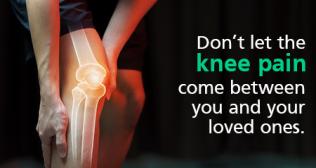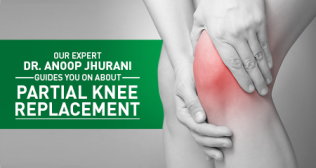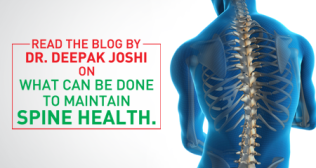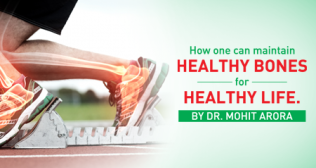
Coping with Spinal Injuries and Disorders: Managing Health
Introduction
Spinal cord injuries comprise damage to the spinal cord. This bundle of nerve fibers links the brain to nerves throughout the body. Cord damage can interrupt sensory signals and control muscle movement. Scientific innovations are opening new avenues to improved outcomes after these injuries. Dive deep to know more about the causes, symptoms, and treatment approaches of spinal injuries.
Causes of Spinal Cord Injuries
Spinal cord injuries can happen for an array of reasons. Possible causes comprise:
- Motor Vehicle Crashes: These are the predominant cause of spinal cord injuries, responsible for >37% of all such injuries.
- Falls: They are responsible for approximately 31% of all spinal cord injuries.
- Violence-Related: These include penetrating injuries from bullets or sharp entities like knives. They are responsible for approximately 15% of all spinal cord injuries.
- Sports-Related: These are accountable for about 8% of spinal cord injuries. Diving is the predominant sports-related reason for spinal cord injuries.
Symptoms of Spinal Cord Injuries
The symptoms of spinal cord injuries depend on the extent and injury location. An injury that occurs lower down the spinal cord may only impact an individual’s lower body and legs. Paralysis can occur immediately upon injury or develop over a period of time from bleeding and swelling in the spinal cord and cell death.
Spinal cord injuries can cause one or more manifestations, including:
- Numbness, tingling, or changes in sensation in hands and feet
- Loss of movement
- Pain in the neck, back, or head
- Weakness in any body part
How are Spinal Cord Injuries Treated?
The treatment for spinal cord injuries varies widely.
- The primary treatment is surgery. Apart from releasing the pressure on the spinal cord, it can also mend damage related to surrounding injuries pressing on the spinal cord.
- Medications like steroids lessen swelling as well as inflammation around the spinal cord.
- Traction helps hold you in place to minimize movement around your spinal cord injury.
- Splints, braces, halos, or other support devices keep the area around your spinal cord injury stable.
Coping With a Spinal Cord Injury
Research by NCBI has found that between 250,000 and 500,000 spinal injuries occur each year. The high rate of the injuries, paired with the impact the condition poses physically, psychologically, as well as socially, means creating awareness of coping strategies is paramount.
Long-Term Support
Individuals with a spinal cord injury will likely need additional care in the weeks and months that follow their injury. Few types of care may need to continue for years or indefinitely. Some examples include:
- Occupational Therapy: It helps you build strength and learn to manage and adapt to your injury’s manifestations.
- Speech Therapy: Individuals with injuries high in their spinal cord may benefit from speech therapy. It can aid with swallowing as well as communication.
- Mental Healthcare: A spinal cord injury is traumatic in ways that go beyond the physical effects. The event that caused the injury may become a source of distress.
Here are Some Tips for Coping With Spinal Cord Injuries
Allow Yourself to Grieve
The loss of muscle functions and motor skills can be challenging to accept and process. It can evoke emotions that might sometimes get overwhelming. This is called grief.
Though everyone handles grief in their own way, feelings of anger, denial, and depression are common. After one goes through these phases, peace and acceptance are possible.
Don’t Bottle Up Heavy Feelings
The main battle when an individual suffers from a spinal cord injury is always in the mind.
One approach to easing the mental battle is expressing one’s views. Taking out the frustrations and negative feelings in front of a therapist, friend, family member, or support group offers an outlet. It also creates space for getting empathy, bolster, and encouragement to see life differently.
Don’t Rush the Recovery Process
Recovery after sustaining a spinal cord injury is long, unpredictable, and complex. It requires an individual to live one day at a time and set realistic as well as achievable goals. Practicing patience doesn’t mean giving up on progress. It means understanding that the recovery journey takes time and that each small progress is a stepping stone to recovery.
In case of spinal cord injuries, seek immediate medical attention to prevent further complications.
Popular Searches :
Hospitals: Cancer Hospital in Delhi | Best Heart Hospital in Delhi | Hospital in Amritsar | Hospital in Ludhiana | Hospitals in Mohali | Hospital in Faridabad | Hospitals in Gurgaon | Best Hospital in Jaipur | Hospitals in Greater Noida | Hospitals in Noida | Best Kidney Hospital in Kolkata | Best Hospital in Kolkata | Hospitals in Rajajinagar Bangalore | Hospitals in Richmond Road Bangalore | Hospitals in Nagarbhavi Bangalore | Hospital in Kalyan West | Hospitals in Mulund | Best Hospital in India | Gastroenterologist in Jaipur | Cardiology Hospital in India
Doctors: Dr. Rana Patir | Dr. Rajesh Benny | Dr. Rahul Bhargava | Dr. Jayant Arora | Dr. Anoop Misra | Dr. Manu Tiwari | Dr. Praveer Agarwal | Dr. Arup Ratan Dutta | Dr. Meenakshi Ahuja | Dr. Anoop Jhurani | Dr. Shivaji Basu | Dr. Subhash Jangid | Dr. Atul Mathur | Dr. Gurinder Bedi | Dr. Monika Wadhawan | Dr. Debasis Datta | Dr. Shrinivas Narayan | Dr. Praveen Gupta | Dr. Nitin Jha | Dr. Raghu Nagaraj | Dr. Ashok Seth | Dr. Sandeep Vaishya | Dr. Atul Mishra | Dr. Z S Meharwal | Dr. Ajay Bhalla | Dr. Atul Kumar Mittal | Dr. Arvind Kumar Khurana | Dr. Narayan Hulse | Dr. Samir Parikh | Dr. Amit Javed | Dr. Narayan Banerjee | Dr. Bimlesh Dhar Pandey | Dr. Arghya Chattopadhyay | Dr. G.R. Vijay Kumar | Dr Ashok Gupta | Dr. Gourdas Choudhuri | Dr. Sushrut Singh | Dr. N.C. Krishnamani | Dr. Atampreet Singh | Dr. Vivek Jawali | Dr. Sanjeev Gulati | Dr. Amite Pankaj Aggarwal | Dr. Ajay Kaul | Dr. Sunita Varma | Dr. Manoj Kumar Goel | Dr. R Muralidharan | Dr. Sushmita Roychowdhury | Dr. T.S. MAHANT | Dr. UDIPTA RAY | Dr. Aparna Jaswal | Dr. Ravul Jindal | Dr. Savyasachi Saxena | Dr. Ajay Kumar Kriplani | Dr. Nitesh Rohatgi | Dr. Anupam Jindal |
Specialities: Heart Lung Transplant | Orthopedic | Cardiology Interventional | Obstetrics & Gynaecology | Onco Radiation | Neurosurgery |



















